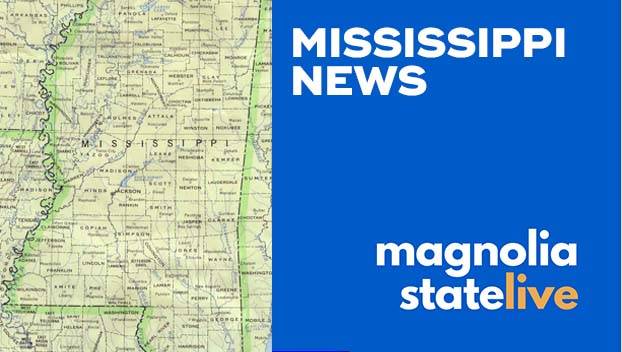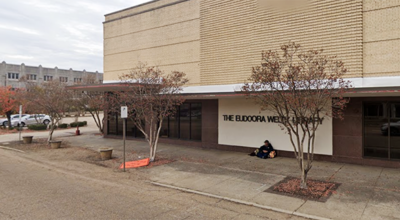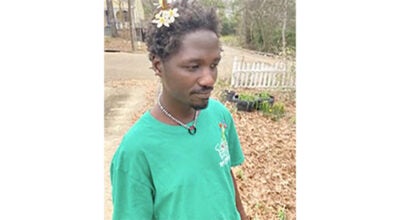What happens to the unclaimed dead? Bodies often cremated; ashes stored
Published 5:43 am Sunday, August 8, 2021
Alone in a Lowndes County residence, a woman in her 70s died in March. No one will attend her funeral. In fact, there won’t even be one.
Her family initially contacted a funeral home to make arrangements, but “talks fell apart” after the family and funeral home couldn’t agree on a price, Coroner Greg Merchant said. Now, her body is scheduled for county ordered cremation at Lowndes Funeral Home.
“I think the family was looking for some insurance that wasn’t there,” Merchant said.
For weeks, then months, neither the funeral home nor Merchant could make contact with family members again. The “several times” Merchant went to the house where the woman lived — deeded to her late son’s widow — no one came to the door.
On Aug. 2, Merchant asked the county board of supervisors to declare the woman’s body unclaimed. With a unanimous vote, the county agreed to pay the funeral home $500 to have her cremated. From there, Merchant said, the funeral home will either store her ashes on-site or legally dispose of them elsewhere.
No service. No eulogy. No preacher. No marked grave.
“Her family had claimed her at one time, but then they abandoned her,” Merchant said. “… I’ve asked (attorneys) if people can do that. But according to the law, you or I, or anybody, are not obligated to take on the expense of someone else.”
More than unclaimed, the woman was indigent. She had no property or bank assets the county could find to defray the cost of the cremation.
She didn’t even own a car.
“All she had were the clothes on her back,” Merchant said.
A MATTER OF MEANS
Merchant said the woman is the 11th body Lowndes County has declared unclaimed or indigent in his 17 years as coroner. Across the river in Oktibbeha County, Coroner Michael Hunt said he’s had only four bodies declared unclaimed in his 28 years in office.
State statute says coroners should give family members “reasonable time” to claim the bodies of their loved ones, Merchant said, and he always waits at least 30 days. While the bodies lie at the county morgue, coroners diligently seek to notify the next of kin, or any family relation, to claim the body — sifting through records, making calls and using any other legal means. If that fails, or family members who have been contacted still won’t claim the body, Merchant said, coroners then seek “anyone willing” to bear the cost of the funeral services — friends, churches, etc.
Only after all those avenues fail does Merchant or Hunt ask supervisors to declare a body unclaimed, after which the remains basically become a “ward of the state,” Merchant said.
For Hunt, it’s been 10 years or so since he’s dealt with an unclaimed body, though he said there was one last year that took a long time before someone finally came forward.
“It seems like it’s getting harder and harder for people to take responsibility,” Hunt said.
Most, if not all, of Hunt’s unclaimed cases have been elderly people who outlived all their close relatives. After cremation, he said, the unclaimed ashes are placed in a vault at the sheriff’s office.
“If a family member comes around later to get them, I think it’s up to the coroner’s office whether to release those remains,” he said.
In Lowndes County, Merchant has seen unclaimed bodies of all ages. The common denominator in his cases, he said, has been lack of means to pay the $2,500 or more for funeral services.
One instance, he recalled, was a young man with a troubled past who died after being estranged from his family.
“When I contacted the family, they said, ‘We’ve done all we’re going to do. You take care of it,'” Merchant remembered.
There was a man who died whose mother and aunt combined could not scrape up enough money for funeral services, so they left their loved one’s body to the county. Another time, Merchant said, a man had come from out of state to work in Lowndes County. When he died, Merchant contacted the man’s brother who “didn’t want to participate.”
Possibly the strangest example, though, was a family who moved into a home locally and found cremated remains in a box in the house. The new homeowners contacted Merchant, who somehow identified the remains and tracked down a relative — a man who had been incarcerated.
“He told me, ‘I didn’t know where she got off to,'” Merchant recalled. “He said he’d come to claim her, but that was eight or nine years ago, and she’s still with me. Seems like when I get them on the shelf, I don’t get rid of them. … And the shelf’s getting full.”
In reality, Merchant said he’s kept the ashes of only a few cremated bodies. In years past, he secured donated caskets for some unclaimed bodies and buried them in unmarked graves at an old cemetery on Highway 69 that fell into county ownership. About four or five years ago, when casket donations dried up and burial land for indigent bodies became scarce, he began sending the unclaimed to either Memorial Gunter Peel or Lowndes funeral homes for cremation.
“The actual cremation is handled for the unclaimed and indigent just like it would be for anyone else,” Merchant said. “There are no shortcuts.”
AN ODDBALL SITUATION
In a closet downstairs at Memorial Gunter Peel, there are boxes of cremated remains sitting on shelves. Some were sent by the county after being declared “unclaimed.” Others were never claimed even after family members paid for the cremation.
The funeral home only has to keep them for 30 days, funeral director Craig Summerford said, before they can be disposed elsewhere.
“We never do (dispose of them),” Summerford said. “We’ve still got them.”
In cases where family members are initially involved and then just don’t come to get the ashes, Summerford said, it could be that one family member who agreed to pay for the cremation and another family member for the services, and the latter just backed out.
“It’s an oddball situation,” Summerford said. “It doesn’t happen very often, but it does happen.”
More News






